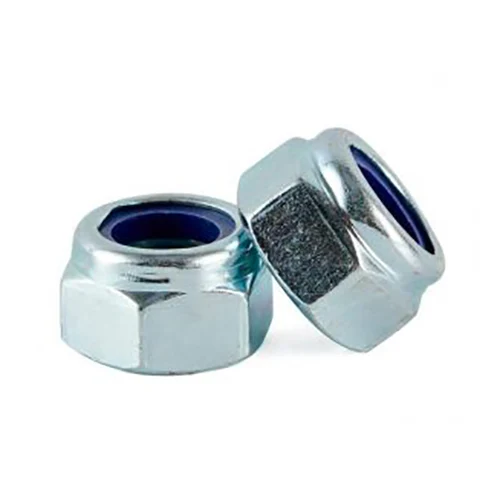Nylon Insert Nut Types and Locking Mechanisms
2025-09-01
In the world of fasteners, nylon insert nuts stand out as a reliable and widely used solution for preventing loosening under vibration and torque. This article delves into the various types of nylon insert nuts, their locking mechanisms, and key product parameters. We will explore the technical specifications, applications, and advantages of these nuts, providing detailed tables and lists to help you make informed decisions for your projects. Whether you are in automotive, aerospace, machinery, or construction, understanding these components can enhance the safety and durability of your assemblies.
Introduction to Nylon Insert Nuts
Nylon insert nuts, often referred to as nyloc nuts, are hex nuts with a nylon collar insert at one end. This collar creates a friction fit when mated with a bolt, providing resistance to vibration and loosening. The elastic properties of the nylon allow it to return to its original shape after deformation, ensuring repeated use without significant loss of locking effectiveness. These nuts are ideal for applications where reliability under dynamic loads is critical.
Types of Nylon Insert Nuts
Nylon insert nuts come in several varieties, each designed for specific applications and performance requirements. Below are the common types:
-
Hex Nylon Insert Nuts
Standard hex nuts with a nylon insert. They are the most common type and used in general applications. -
Nylon Insert Jam Nuts
Thinner than standard hex nuts, these are used where space is limited. They provide reliable locking in tight configurations. -
Nylon Insert Flange Nuts
These feature an integrated flange that distributes pressure over a wider surface, reducing the risk of damage to the attached material. -
Nylon Insert Lock Nuts with Captive Washer
Combine a locking nut with a captive washer, offering both locking and load distribution in one component. -
High-Temperature Nylon Insert Nuts
Designed for environments with elevated temperatures, using specialized nylon that maintains locking properties under heat. -
Metric and Imperial Sizes
Available in both metric (M-series) and imperial (UNC/UNF) thread sizes to meet global standards.
Locking Mechanism Explained
The locking action of nylon insert nuts is achieved through the elastic deformation of the nylon ring. When the nut is threaded onto a bolt, the nylon is compressed and grips the bolt threads tightly. This grip generates friction that resists rotational forces, such as those caused by vibration or thermal cycling. The nylon also absorbs energy from vibrations, further enhancing the nut’s ability to stay in place. Unlike chemical adhesives or mechanical washers, the nylon insert does not require additional treatments and remains effective through multiple installations and removals, provided the nylon is not damaged.
Product Parameters and Specifications
To ensure optimal performance, it is essential to select the right nylon insert nut based on parameters such as size, material, and performance ratings. Below are detailed specifications for Haiyan Bolt’s nylon insert nuts.
Materials and Finishes
-
Material: Carbon steel, stainless steel (A2/A4), brass, and other alloys.
-
Nylon Insert: Typically PA66 (nylon 6/6), which offers excellent wear and chemical resistance.
-
Finish: Zinc plating, galvanization, dichromate, or natural finish for corrosion resistance.
Performance Ratings
-
Temperature Range: Standard nylon inserts perform between -40°C to 120°C. High-temperature variants can withstand up to 150°C.
-
Reusability: Can be reused up to 10 times without significant loss of locking torque.
-
Corrosion Resistance: Varies by material and finish; stainless steel options offer the highest resistance.
Dimensional Specifications
Nylon insert nuts are available in various thread sizes and dimensions. The table below outlines common metric sizes:
| Thread Size (M) | Width Across Flats (mm) | Height (mm) | Nylon Collar Depth (mm) |
|---|---|---|---|
| M4 | 7 | 5.5 | 2.5 |
| M5 | 8 | 6.5 | 3.0 |
| M6 | 10 | 7.5 | 3.5 |
| M8 | 13 | 9.5 | 4.0 |
| M10 | 17 | 11.5 | 5.0 |
| M12 | 19 | 14.5 | 6.0 |
| M16 | 24 | 17.5 | 7.0 |
For imperial sizes:
| Thread Size (Inch) | Width Across Flats (in) | Height (in) | Nylon Collar Depth (in) |
|---|---|---|---|
| 1/4" | 7/16 | 0.225 | 0.100 |
| 5/16" | 1/2 | 0.275 | 0.120 |
| 3/8" | 9/16 | 0.330 | 0.140 |
| 1/2" | 3/4 | 0.430 | 0.180 |
| 5/8" | 15/16 | 0.540 | 0.220 |
| 3/4" | 1-1/8 | 0.650 | 0.260 |
Mechanical Properties
-
Proof Load: Varies by material and size; for example, Grade 8 carbon steel nuts can have a proof load of 120,000 psi.
-
Hardness: Typically between 70-100 HRB for steel nuts.
-
Locking Torque: The torque required to overcome the nylon’s resistance. This is typically 20-40% higher than the installation torque.
Applications of Nylon Insert Nuts
Nylon insert nuts are versatile and used across numerous industries:
-
Automotive: Securing components in engines, transmissions, and chassis where vibration is prevalent.
-
Aerospace: Critical assemblies requiring lightweight and reliable fastening.
-
Machinery: Industrial equipment subject to dynamic loads and vibrations.
-
Electronics: Fastening components in devices where loosening could lead to failure.
-
Construction: Structural applications requiring vibration resistance.
Advantages of Using Nylon Insert Nuts
-
Vibration Resistance: Superior performance in high-vibration environments.
-
Reusability: Can be used multiple times without significant performance degradation.
-
Corrosion Resistance: Options available for corrosive environments.
-
Ease of Installation: No need for additional locking devices like washers or adhesives.
-
Cost-Effective: Provides reliable locking at a competitive price.
How to Select the Right Nylon Insert Nut
Choosing the appropriate nut involves considering:
-
Thread Size and Pitch: Ensure compatibility with the bolt.
-
Material: Select based on environmental conditions (e.g., stainless steel for corrosion resistance).
-
Temperature: Standard nylon may not suit high-temperature applications.
-
Load Requirements: Verify the nut’s mechanical properties match the application loads.
-
Standards Compliance: Look for nuts meeting ISO, DIN, or ANSI standards.
Installation Tips
-
Torque Values: Follow recommended torque specifications to avoid damaging the nylon insert.
-
Lubrication: Avoid lubricating the nylon portion, as it may reduce locking effectiveness.
-
Inspection: Check for nylon damage before reusing; replace if the insert is worn or cracked.
Why Choose Haiyan Bolt?
At Haiyan Bolt, we pride ourselves on manufacturing high-quality nylon insert nuts that meet international standards. Our products undergo rigorous testing for performance, durability, and reliability. With decades of experience, we serve clients across various industries, providing customized solutions and technical support.
I hope this comprehensive guide helps you understand the types, mechanisms, and applications of nylon insert nuts. For more details or to discuss your specific needs, please reach out to us at [email protected]. We look forward to assisting you with your fastener requirements and ensuring the success of your projects.



